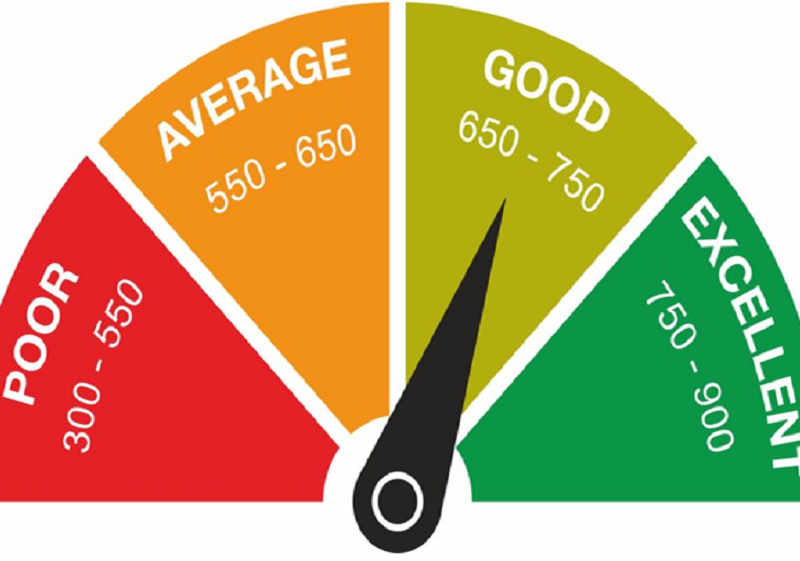A house is considered a major asset and is associated with financial stability. However, accessing the right capital to buy a home can be an issue for many especially if you don’t have a favorable credit profile. With a poor CIBIL (Credit Bureau Information Limited) score, your application for a home loan can be rejected. If you are looking for home financing, it is important to understand the CIBIL score and how it affects your loan application.
What it is
CIBIL is usually a three-digit number that ranges from 300-900. It determines the creditworthiness of a home loan seeker. This score is based on the credit records of the borrower collected from NBFCs and banks. This data is used when preparing the loan applicants’ reports. If the report shows irregular loan repayments bankruptcy, the CIBIL score will be low. In such a case, most financiers will be reluctant to extend a home loan.
Importance of a good CIBIL score when seeking a home loan
When you have a good CIBIL score, it means a higher credit limit on overdrafts and credit cards. You can also easily access better limits on different lines of credit. Financial institutions like banks may be more willing to give you a loan, especially with a history of timely repayments. A good CIBIL score means:
- Higher credit limit: Normally, a good score means better credit limits
- Fast approvals: Since the borrower has already proven they are committed to payments in the past, a good score may lead to fast approvals when they make a home loan application. Even if the loan approval takes a longer period, a person with a good credit score has a greater chance of being approved than the one with a low score.
- Better interest rates: Normally, individuals with a good score may access better interest ratesas compared to those with a lower one. This is to say, anyone with a good score can use it as a bargainingchipsince he or she is viewed as less likely to default on the loan if approved.
- Betterterms and conditions: A good score may mean favorable terms on credit products and loans. This may cover perkslike flexible repayment, annual fee waiver, and lower processing fees.
Reasons why you may have a low or poor CIBIL score
Having a good CIBIL for home loan boosts your chances of accessing credit. Toget there, you need to make timely payments and show responsibilityfor finances. Anyone who has ever bought a home using a loan can advise you to first ensure you have a good credit score even before you begin the process. If you apply for this kind of loan and it is not approved, it could be due to a poor score caused by:
- A poor repayment history: If you take loans but usually end up paying late or defaulting is an indication of financial issues. This hurts your CIBIL score and is not favorable to borrowers.
- Using credit indiscriminately: A high credit usage may affect your CIBIL score negatively. However, when there is a higher balance, it clearly indicates that you have a higher repayment burden. This may lead to a decline in your score.
- Having more unsecured loans: If your unsecured loan share is high (like personal or auto loans), you may end up with a low score.
- Closing accounts recklessly: There are instances when a client closes accounts without following the set procedures and formalities leaving pending balances. Such an account reflects on the account holder as an outstanding obligation and can affect their credit score.
- Standing as a guarantor for defaulters: There are instances where an individual messes up their score because of a gesture done in goodwill. When you guarantee a known defaulter, you can harm your credit score. You should avoid such commitments based on emotions.
Improving your CIBIL score
If you really want to access a home loan, you should consider improving your CIBIL score. One thing to note is that it is not that hard as long as you are aware of some important points. These include:
Paying up
The secret to boosting your CIBIL score and your chances of a loan is to make timely payments. It is not about settling when you want or when you have saved some money in your account. Late payments are not an attractive trend and are not kind to your CIBIL score.
Avoid low financial leverage
It is important to keep your credit requirements and borrowings as low as possible. Don’t be too quick to make loan applications without giving it a deep thought first. You need to evaluate how badly you need that loan and how much you can raise from any other source. Loansshould be limited to the times when they are needed.
Mixed borrowings
It is important to maintain a mix of loans like auto, personal, or home loans. Having a secured loan such as a home loan has its benefits but the balance should not be too skewed.
Keep everything correct
Oversight or miscommunication in your credit card records or personal accounts can be costly if they aren’t corrected. They can have a negative impact on your credit score making it hard for you to access a home loan.
Conclusion
The CIBIL score generally reflects the credit health of a borrower. This means you are in a better position to be approved for a loan easily than someone with a lower score. It is prudent to check your score before applying for a loan. This is because the CIBIL score can affect the borrower’s eligibility to access home loans. A good CIBIL for home loan is considered to be 750 and above.

